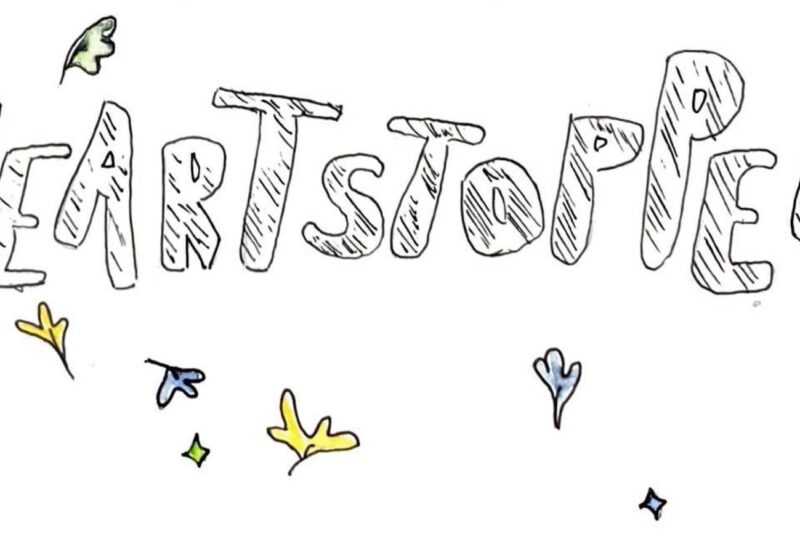Last week, English alternative rock band Muse released its fifth studio album, ‘The Resistance.” This album draws from a wide variety of musical influences, combining a number of genres, while still maintaining the overall sound that has made the band popular.
It has become increasingly difficult to decide exactly how to best characterize Muse. As one of many English alternative bands with roots in the early 1990s, Muse’s music has always had an audience with the listeners of the post-Radiohead generation.
However, as Muse has evolved as a band, particularly with the release of 2006’s ‘Black Holes and Revelations,” its music has entered the mainstream American market. Featured on the soundtracks of several popular movies, including ‘Watchmen” and the tween girl phenomenon ‘Twilight,” Muse has staked its claim in a broad collection of demographics.
Because of Muse’s wide appeal, it makes sense that ‘The Resistance” is essentially a grand amalgamation of sounds from an assorted collection of genres. While ‘Black Holes and Revelations” featured a cohesive space disco theme, ‘The Resistance” is a passionate, bold and fight anthem-like set of tracks, with a large degree of variety and innovation.
Front man Matthew Bellamy stays true to the band’s soul with his characteristic falsetto belting and intricately orchestrated instrumentation. The songs of ‘The Resistance” at times neglect the innovative guitar riffs that contributed to the success of the band’s earlier albums, but Bellamy makes up for this missing piece by paying special attention to the piano pieces on the album.
Listeners of the alternative genre have undoubtedly been bombarded by piano-rock over the years, especially with bands like Coldplay dominating the music scene, but Bellamy raises the bar in his classically influenced piano interludes. Especially memorable is ‘Collateral Damage,” which, complete with orchestral backup, is clearly influenced by Chopin. The song takes on a haunting political meaning with the muffled noises of missiles and jet fighters playing in the background.
Many of the album’s other tracks have clearly identifiable influences. ‘The United States of Eurasia,” the more energetic sister track of ‘Collateral Damage,” feels much like Queen’s ‘Bohemian Rhapsody,” punctuated by moments of Middle Eastern influenced orchestration. The lyrics give off a vaguely revolutionary dystopian vibe, often making connections with the tone of George Orwell’s ‘1984.”
‘Undisclosed Desires,” perhaps the most catchy song on the album, has a synth-strings beat somewhat reminiscent of Timbaland, while managing to maintain a smooth, edgy tone suitable for a James Bond film.
Strangely, the refrain of ‘Unnatural Selection” sounds remarkably similar to ABBA’s 1981 synthpop hit ‘Lay All Your Love on Me,” though I’d be surprised if Muse intentionally borrowed from the Swedish group responsible for ‘Mamma Mia!”
The synthesizer melody and percussion of ‘Uprising” is in some ways comparable to the theme from BBC’s ‘Doctor Who” TV series. Whether or not Muse intended the resemblance, as the album’s lead-in single, the track has enough strength to hold its own, particularly with audiences unfamiliar with British television.
In another nod to classical music, ‘Mon cœur s’ouvre ta voix” is a restyling of an aria from Camille Saint-Sans’s opera ‘Samson and Delilah,” featuring alternating moments of Muse’s familiar loud passion and intimate softness.
The middle portion of the album, while certainly not weak by any means, has a few comparatively unmemorable tracks, including the ’80s synth power ballad ‘Guiding Light” and the more conventionally Muse-like ‘MK Ultra.”
The most creative and moving moments of ‘The Resistance” are to be found in the three-part ‘Exogenesis.” With sweeping symphonic melodies, classically styled piano themes and sparse singing on Bellamy’s part, the last third of the album is very much a dreamy orchestral experience.
‘Exogenesis” is infused with musical emotion, at times adopting the tone of a film score, at others drifting into something one would expect to hear on NPR. The split format of ‘Exogenesis” creates the feeling of symphonic movements that, while definitely orchestral, also never quite let go of the alternative rock genre. ‘Exogenesis: Symphony Part 3 (Redemption)” closes ‘The Resistance” with an understated power that effectively brings together a piano melody inspired by ‘Moonlight Sonata,” a mild, though uplifting beat, and climactically swelling strings.
‘The Resistance” pulls threads from many musical genres, blending classical, rock, synthpop and others.
Yet while these threads may seem unrelated, Muse intricately weaves them together to create another wonderful addition to the world of alternative rock.
Gaylo is a member of
the class of 2012.




